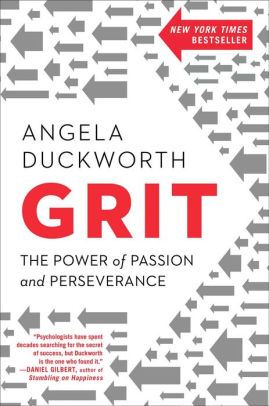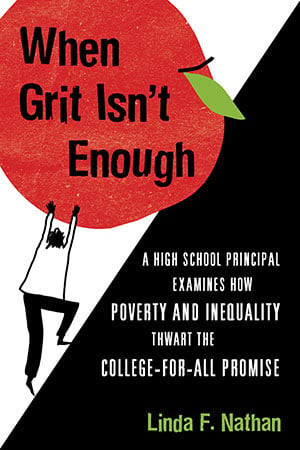You have /5 articles left.
Sign up for a free account or log in.

iStock
Many admissions officers report frustration with the traditional measures -- primarily grades and standardized test scores -- colleges use to evaluate applicants. What about students who attended poorly resourced high schools, or who grew up in poverty and yet somehow managed to do well? Do test scores and grades really offer much there?
 In recent years, many of those looking to identify talent in new ways have focused on "grit" as a quality that separates some students from others. While many researchers and others have extolled the value of grit, the scholar most associated with the idea is Angela Duckworth, a professor of psychology at the University of Pennsylvania. Her book, Grit: The Power of Passion and Perseverance (Scribner), describes how to look for and nurture grit. (She has created a way for you to check your grit level here.)
In recent years, many of those looking to identify talent in new ways have focused on "grit" as a quality that separates some students from others. While many researchers and others have extolled the value of grit, the scholar most associated with the idea is Angela Duckworth, a professor of psychology at the University of Pennsylvania. Her book, Grit: The Power of Passion and Perseverance (Scribner), describes how to look for and nurture grit. (She has created a way for you to check your grit level here.)
While grit is an idea that can apply to all kinds of people, the concept of rewarding grit in college admissions has been of interest to those who want to increase their offers to black, Latino and low-income students. Grit is a race-neutral quality, of course, but could be helpful to those seeking to promote diversity at a time when affirmative action faces legal and political challenges.
For some of the ways admissions experts have embraced the grit concept, see this link and this one and this one.
As the grit idea has gained support for use in admissions and elsewhere in education, dueling studies have come out, some praising the idea and others criticizing it. But the debate may be shifting against grit. It's not that people don't want to reward those who overcome obstacles, but there are questions about whether the right qualities (or qualities that can really be identified) are being used.
Drawing particular attention of late is a meta-analysis of grit studies. A meta-analysis synthesizes as many studies as possible and looks for trends in all the studies. The meta-analysis on grit, "Much Ado About Grit: A Meta-Analytic Synthesis of the Grit Literature," was published recently in The Journal of Personality and Social Psychology. The studies examined include 584 effect sizes in 88 samples and cover 66,807 individuals.
The researchers' conclusion: "Grit is only moderately correlated with performance and retention, and that grit is very strongly correlated with conscientiousness. We also find that the perseverance of effort facet has significantly stronger criterion validities than the consistency of interest facet and that perseverance of effort explains variance in academic performance even after controlling for conscientiousness. In aggregate our results suggest that interventions designed to enhance grit may only have weak effects on performance and success, that the construct validity of grit is in question."
Marcus Crede, one of the authors of the meta-analysis and a professor of psychology at Iowa State University, said via email that there are numerous problems with trying to use grit in admissions, or to encourage grit among children before they reach the age when they may be headed to college.
For starters, he said that grit inventories "are very fakable" and that students know how to "present" themselves as having "lots of grit."
Beyond that, he said that what people call grit is really conscientiousness and that it is "almost impossible to shift a person's level of conscientiousness via planned interventions," even if "there is a natural increase in conscientiousness as people move through early adulthood, but this is a relatively natural progression as life experiences accumulate."
And the grit literature is also gaining a new entry this month with the publication of a work that suggests that the emphasis on grit promotes a false idea about success -- and may shift attention away from inequities in American society.
 When Grit Isn't Enough: A High School Principal Examines How Poverty and Inequality Thwart the College-for-All Promise (Beacon Press) is by Linda Nathan, who was the founding headmaster of the Boston Arts Academy, which boasts a 94 percent college acceptance rate. She discusses how she promoted the idea of grit to students by talking constantly about how they needed to work harder and harder and that this would allow them to get ahead.
When Grit Isn't Enough: A High School Principal Examines How Poverty and Inequality Thwart the College-for-All Promise (Beacon Press) is by Linda Nathan, who was the founding headmaster of the Boston Arts Academy, which boasts a 94 percent college acceptance rate. She discusses how she promoted the idea of grit to students by talking constantly about how they needed to work harder and harder and that this would allow them to get ahead.
While many did, she writes that others faltered in college or weren't prepared -- and she fears that the grit message has real flaws.
Grit theory encourages educators to just tell students to work harder and accept no excuses and that then, "success will be yours," Nathan said via email.
"This creates an individualized approach to success and access and ameliorates the necessity to talk about systemic issues of race, poverty and social class that so dominate this country and our schools. Said differently, it lets too many off the hook," she said. "The no-excuses world of schools seems to ignore reams of data that repeatedly show how poverty, social class, race and parents' educational attainment more directly influence an individual's success and potential earnings than any individual effort. Individual effort is still vitally important, but a student's circumstances still do impact his or her future, and we can't ignore these additional important factors."




